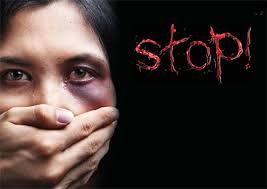Patriarchy in Afghanistan

“patriarchy” A title commonly applied to persons in Afghanistan and other tribal areas who live in tribal and traditional societies. This expression means the leader or guardian of a family, tribe or generation and includes unique characteristics of power, respect and influence.
In Afghanistan, people known as “patriarchies” are usually people who hold important roles in tribal societies and are responsible for resolving disputes, commanding in times of war, or maintaining security and order in their areas. These people are often socially and culturally respected and play an important role in the decision-making and leadership of their communities.
Each tribe in Afghanistan may have one or more patriarchs who are referred to as key figures in their society. However, the concept of “male patriarchy” may be seen in different forms and with different meanings in Afghanistan and for the people of this country.
Why has patriarchy increased in Afghanistan in the current situation?
In the current situation in Afghanistan, various factors can increase the role and importance of patriarchy in tribal societies. Some of these factors are:
-
Unfavorable security conditions: After complex events and political changes in Afghanistan, security has decreased in many areas of the country, especially rural areas. In this situation, patriarchy can play a greater role in maintaining the security and order of society and act as local commanders to deal with security threats and crimes.
-
Change in power structure: With political changes and power transfer in Afghanistan, some people may take advantage of these conditions to strengthen their power and influence in the society. These structural changes may lead to an increase in the role of patriarchy in tribal societies.
-
The need to create order and strength: in adverse conditions, where there is sufficient benefit from security

Patriarchy in Afghanistan has caused domestic violence
Patriarchy or the head of the tribe in Afghanistan can cause family or tribal violence in some cases, but this depends on various conditions and factors that must be considered:
-
Power and influence of patriarchy: Patriarchy in tribal societies usually has high power and influence. If this person uses this power to incite violence and dominate others, it may cause violence in these areas to become more intense.
-
Absence of rule of law: In many parts of Afghanistan, the government and legal system are not fully functional and law enforcement is ineffective. This situation may cause patriarchy to commit violence without limits and using their power.
-
Tribal disputes and extremism: some tribal, ethnic or religious disputes may lead to the escalation of violence. Patriarchy may play a role in fueling or exacerbating these conflicts.
-
Lack of peaceful solutions: The occurrence of family or tribal violence is usually due to the lack of peaceful solutions to resolve disputes and conflicts. Patriarchy may tend to use violent methods instead of resolving situations peacefully.
-
Poverty and lack of development: The conditions of poverty and lack of development in many areas of Afghanistan can intensify violence. In these situations, patriarchy may use violence as a way to maintain power or control resources.
In general, these points show that family or tribal violence in Afghanistan is due to various factors and the role of patriarchy may be only one of these factors. To prevent this type of violence, we need to develop a strong government, strengthen human rights and create peaceful solutions to resolve disputes.
Afghanistan is a land that remains like a nightmare for women. In this land, the culture of misogyny and patriarchy has been ruling for a long time, and women have always been stuck in the pits of patriarchy and patriarchy. The inhabitants of this land have always treated women like animals and use them as tools, as if Afghan women were born like animals, only for transportation, genocide and breeding. Because in this society, women never have the right to make decisions and vote, and it is men who make decisions for women.